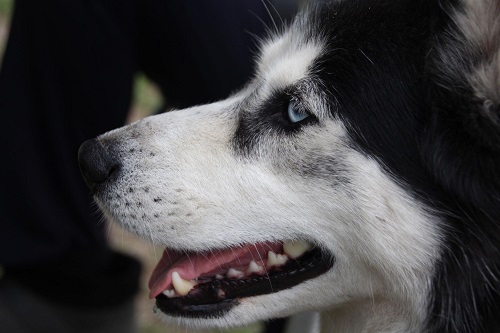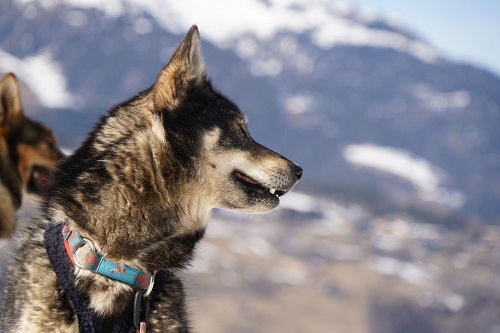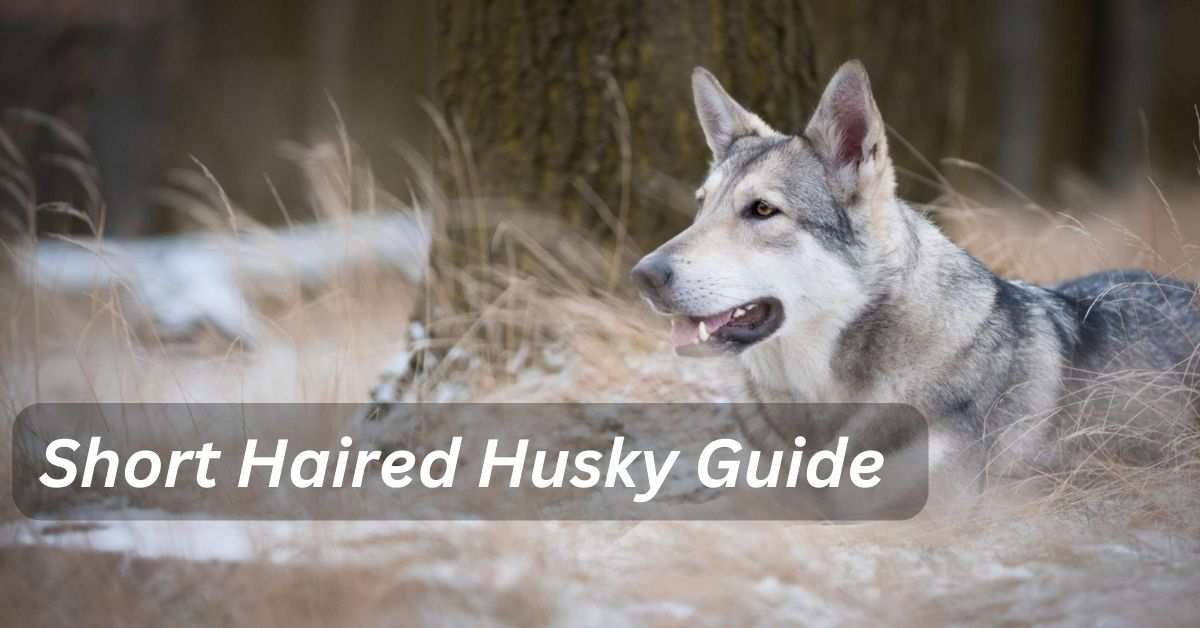Short Haired Husky is a unique and captivating breed that offers the charm of a traditional Husky with a practical twist. Originating from regions with colder climates, these dogs have evolved to survive in various environments while possessing a distinct appearance and temperament.
It’s time to look closer at Huskies with short hairs, uncovering their traits, care needs, training strategies, health considerations, and more. If you’re seeking a loyal and less demanding canine companion, Short Haired Huskies might be the perfect addition to your family.
Characteristics of Short-Haired Huskies
Physical Traits and Coat Variations
Short Haired Huskies boast a stunning array of coat colors, ranging from classic black and white to striking copper and red tones. Their sleek double coat is designed to offer insulation against cold climates, yet it requires less maintenance than their long-haired counterparts.
This low-shedding coat enhances their appearance and contributes to more effortless grooming routines.
Temperament and Behavior Traits
Unlike the stereotypes often associated with Huskies, Short-Haired Huskies exhibit a gentle and affectionate nature. Their adaptable disposition makes them suitable for families, singles, and seniors. These dogs are renowned for their loyalty, intelligence, and social nature, making them excellent companions for various lifestyles.
Comparing with Traditional Long-Haired Huskies
While short and long-haired Huskies share core characteristics, the short-haired variety offers distinct advantages. Their reduced shedding minimizes the presence of fur around your home, and their lower grooming demands free up more time for shared activities and adventures.
Caring for Your Short-Haired Husky

Grooming Needs and Shedding Patterns
Short Haired Huskies necessitate a grooming routine that focuses on maintaining their coat’s health and shine. Regular brushing not only keeps shedding in check but also strengthens the bond between you and your furry friend. Embrace the grooming process as a chance for quality bonding time.
Exercise Requirements and Outdoor Activities
Engaging in regular exercise and outdoor play is vital to keep your Short Haired Husky physically and mentally stimulated. These energetic dogs thrive on brisk walks, jogging, and interactive games. Remember, a tired Husky is a happy Husky!
Nutritional Considerations for a Healthy Coat
A well-balanced diet is pivotal in enhancing your Short Haired Husky’s coat health. Incorporate nutrient-rich foods that support skin and coat vitality, such as omega-3 fatty acids. Consult your veterinarian to create a diet plan tailored to your dog’s needs.
Training and Socialization
Effective Training Methods for Short-Haired Huskies
Training your Short Haired Husky requires patience, consistency, and positive reinforcement. Utilize reward-based training techniques to reinforce desired behaviors and discourage unwanted ones. Keep training sessions engaging and brief to maintain your dog’s focus.
Socializing Your Husky for a Well-Rounded Personality
Early and consistent socialization is vital to ensuring your Short Haired Husky develops into a well-adjusted and friendly adult dog. Expose them to various people, animals, environments, and experiences to build their confidence and sociability.
Common Challenges and How to Overcome Them
Short-haired Huskies may face particular challenges during training and everyday life, like all breeds. From stubbornness to occasional aloofness, understanding these traits and employing appropriate strategies will help you navigate potential obstacles.
Health and Wellness
Common Health Issues in Huskies and Prevention Tips
While Short Haired Huskies are generally robust, they may be prone to specific health conditions. Regular exercise, a balanced diet, and routine veterinary check-ups can significantly contribute to their well-being. Be vigilant for signs of common issues like hip dysplasia and eye conditions.
Regular Veterinary Check-ups and Vaccinations
Scheduled veterinary visits are essential for monitoring your dog’s health and addressing any concerns promptly. Stay up-to-date with vaccinations, preventive medications, and routine screenings to ensure your Short-Haired Husky’s long and vibrant life.
Promoting a Long and Happy Life for Your Short-Haired Husky
Investing in your Short Haired Husky’s health and happiness goes beyond physical care. Spend quality time together, provide mental stimulation, and create a safe and loving environment that nurtures their well-being.
Short-Haired Huskies as Family Pets
Compatibility with Different Household Dynamics
Short-Haired Huskies seamlessly integrate into various family setups, whether you’re a single individual, a couple, or a large household. Their adaptable nature allows them to form strong bonds with each family member.
Involving Children in the Care and Interaction
Incorporating children into the care and interaction with your Short Haired Husky fosters responsibility, empathy, and a lasting friendship. Teach kids how to properly handle and engage with the dog, promoting a harmonious relationship.
Creating a Strong Bond with Your Furry Companion
Your bond is the foundation of a fulfilling relationship with your Short Haired Husky. Spend quality time together through walks, playtime, and training sessions to build a connection that enriches both of your lives.
Myths and Misconceptions
Addressing Misconceptions About Short-Haired Huskies
Dispelling common misconceptions about Short Haired Huskies is essential to understanding the breed’s true nature and capabilities. These dogs offer an appealing blend of companionship and low-maintenance care.
Debunking the Belief That All Huskies Are High-Maintenance
Contrary to popular belief, not all Huskies demand extensive grooming and care. Short Haired Huskies bring the allure of the breed within reach of those seeking a more manageable pet ownership experience.
Separating Facts from Fiction
By distinguishing between facts and fiction, you’ll make informed decisions about adding a Short Haired Husky to your family. Embrace the unique qualities of this breed while appreciating its practical advantages.
Choosing a Short-Haired Husky
Finding Reputable Breeders or Adopting from Shelters
When seeking a Short-Haired Husky, explore reputable breeders known for ethical practices. Alternatively, consider adopting from shelters to provide a loving home to a dog in need while enjoying the benefits of this beautiful breed.
Critical Considerations Before Bringing a Husky Home
Preparing your home and lifestyle for a Short Haired Husky involves careful planning. Assess factors like space, time availability, and your commitment to training and care to ensure a harmonious partnership.

Creating a Suitable Environment for Your New Companion
Your Short-Haired Husky’s environment dramatically influences its well-being. Designate a cozy space with suitable bedding, provide stimulating toys, and establish a routine that caters to their needs.
Conclusion
Short Haired Huskies offer the best of both worlds: the captivating charm of Huskies and a lower-maintenance lifestyle.
By understanding their characteristics, care needs, and the joy they bring to households, you’re well-equipped to embark on a fulfilling journey with your new canine companion.
Frequently Asked Questions (FAQs)
Short Haired Huskies aren’t considered hypoallergenic, but their reduced shedding may be more manageable for allergy sufferers.
While exercise needs vary, Short Haired Huskies share similar energy levels with their long-haired counterparts.
Yes, Short Haired Huskies can adapt to warmer temperatures with proper care and precautions.
